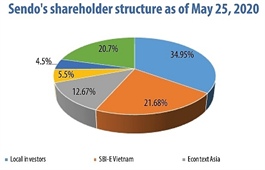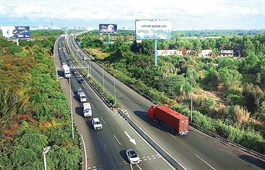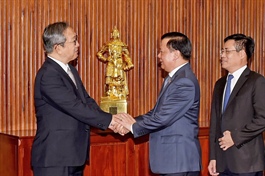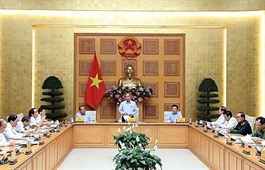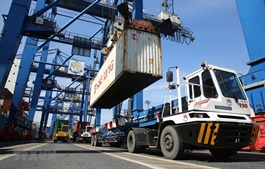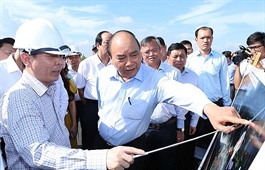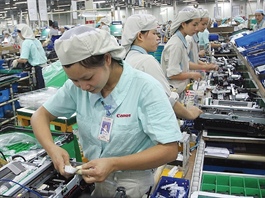Vietnam accelerates normalization of economic and social activities
Vietnam accelerates normalization of economic and social activities
Following 48 straight day period without new cases of Covid-19 infection, the majority of social activities have returned to normal, said Prime Minister Nguyen Xuan Phuc.
Vietnam would continue to accelerate the normalization of economic and social activities to ensure the successful realization of the dual target: containing the pandemic and boosting economic growth, according to Prime Minister Nguyen Xuan Phuc.

Prime Minister Nguyen Xuan Phuc expects Vietnam to accelerate the normalization of social and economic activities. Photo: VGP.
|
There will be no obstacles that the country cannot overcome, Phuc said at a monthly government meeting on June 2, requesting all sectors to have specific plans to achieve the highest target possible in 2020.
Following a 48-day period without new cases of Covid-19 infection, the majority of social activities have returned to a new normalcy, Phuc added.
As government agencies are putting efforts to address social security issues, the public's trust in the Communist Party of Vietnam and the government is growing, he asserted.
According to Phuc, manufacturing activities have started recovering, with the industrial production index rising 11.2% month-on-month in May.
Notably, Vietnam Manufacturing Purchasing Managers’ Index (PMI) rose ten index points in May, one of the strongest increase in the Southeast Asian region. Total goods retail sales and consumer service revenue surged 26.9% month-on-month while FDI commitments in the first five months climbed 13.9% year-on-year, among others.
The Economist suggested Vietnam is the 12th strongest financially out of 66 emerging economies, thanks to stable economic indicators such as public debt, foreign debt, cost of borrowings, and reserve cover.
However, Phuc urged government agencies to remain cautious as the progression of the Covid-19 pandemic remains complicated globally.
Among potential risks the economy faces, Phuc pointed out the disruption of the global supply chain, inflationary pressure and slow disbursement of public investment funds.
In the coming time, Phuc requested efficient and transparent implementation of the government’s supporting programs, including a credit aid package worth VND300 trillion (US$12.87 billion), a VND180-trillion (US$7.63 billion) fiscal stimulus package in forms of deferral of payment of value-added tax, corporate tax and income tax, and a financial support package for vulnerable people worth VND62 trillion (US$2.7 billion).
Phuc said stronger measures are needed to promote domestic consumption, including domestic tourism, while the government continues to finalize a legal framework for new business models of the digital economy, as well as the development of e-government and e-payment.
For 2020, Vietnam targets a 5% GDP growth rate, significantly higher than the 2.7% estimation of the International Monetary Fund (IMF) for Vietnam, which is already the best among Southeast Asian economies.



